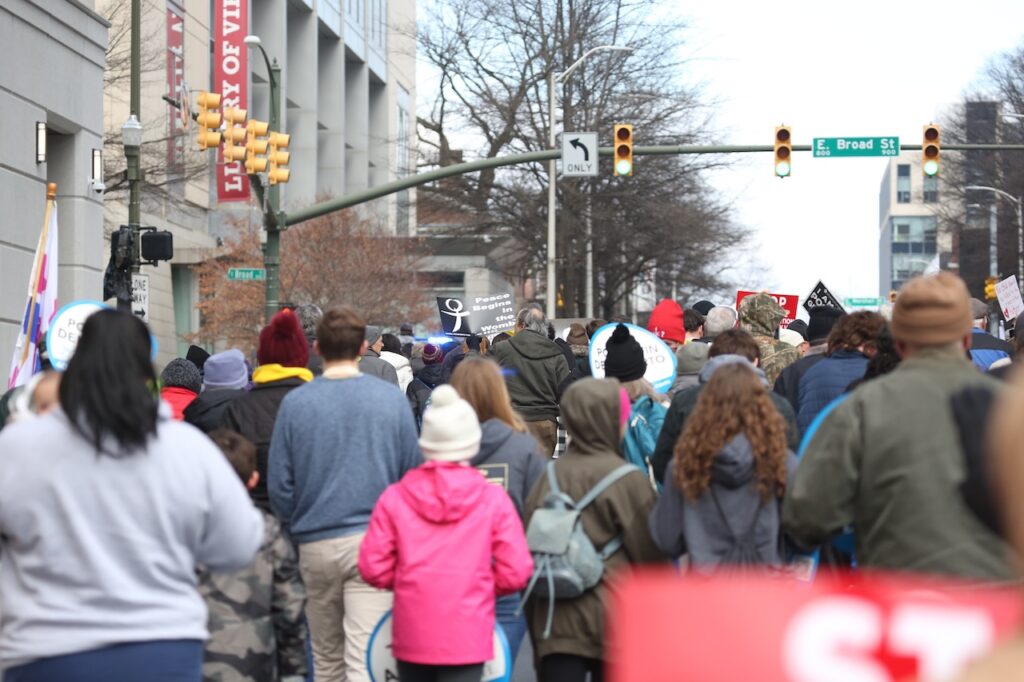WASHINGTON (OSV News) – Headed into its 50th year, the March for Life, a fixture of Catholic pro-life activism held in the nation’s capital each January, is about to become part of a tapestry.
The organization’s long-planned expansion of state marches will eventually make pro-life marches both nationwide and nearly year-round. The goal is to have them in all 50 states by the end of the decade.
With the U.S. Supreme Court’s 2022 overturning its 1973 Roe v. Wade decision, which had made abortion access a constitutional right, and returning the issue of abortion regulation to the states, pro-life activists’ plan is to show support for restrictions or bans on abortion, even in states such as Michigan and California, where referendums have enshrined its availability in state constitutions.
The first statewide march in Richmond, Virginia, was held in 2019, drawing a larger-than-expected crowd of around 7,000 participants.
Marches were held last fall in Bismarck, North Dakota; Columbus, Ohio; Harrisburg, Pennsylvania; and Lansing, Michigan.
Following the national march in Washington, D.C., on Jan. 19, and Richmond, Feb. 21, there will be marches in Atlanta, Feb. 22; Phoenix, March 1; Hartford, Connecticut, March 20; Denver, April 12; and Sacramento, California, April 22.
March for Life President Jeanne Mancini told OSV News the goal is to have a total of 16 marches in 2024. “Each state is different,” she observed.
Legislative proposals are generated by March for Life Action, the organization’s political arm. Mancini said of California and Michigan, “We’re really on the defensive there.”
The national rally and march has, since the first one in 1974, drawn support from the Knights of Columbus. State marches are using partnerships with different public policy organizations for their volunteers. “There’s not a cookie-cutter approach,” Mancini said.
The Virginia march, for instance, is a collaborative effort of the March for Life, the Dioceses of Arlington and Richmond, The Family Foundation, Virginia Catholic Conference, and Virginia Society for Human Life.
In addition to creating the state marches, Mancini, who has led March for Life since its founder, Nellie Gray, died in 2012, has expanded the activities beyond their original Catholic roots to give evangelicals prominent roles in participation. The banner in the Washington march in January 2023 was carried by students from Liberty University.
For Mancini, that’s not such a big development. “The march is nonsectarian in its foundational document,” she said, and evangelicals are “a very important ally for us.”
But she stressed, “Our Catholic alliances are as strong as ever.”
Editor’s note: More information about Virginia Pro-Life Day, Feb. 21, in Richmond.

